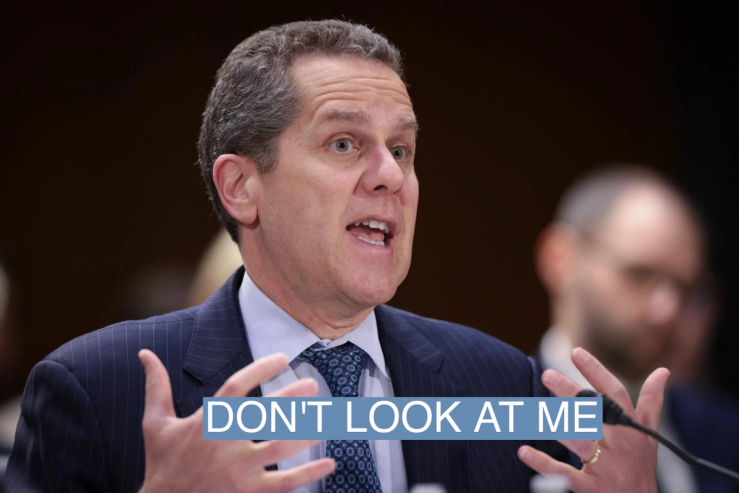The News
In late 2021, U.S. banking regulators alerted executives at Silicon Valley Bank to a problem: Federal Reserve officials weren’t sure the bank could keep funding its operations if investor confidence wobbled.
Supervisors were back a few months later, this time with criticisms of SVB’s board oversight and internal audits. Over the summer, they were alarmed enough to formally decide that SVB was no longer “well managed.” And twice in the fall, they took their concerns in person to SVB’s top brass.
This timeline is laid out in congressional testimony this morning by the Fed’s senior bank-supervision official, Michael Barr. It makes clear that while SVB’s shoddy risk management, which took down the company and sparked panic across the U.S. banking sector, might have been a surprise to its depositors and investors, it was well-known to the watchdogs in charge of preventing it.
And so the finger-pointing over who’s to blame began in earnest this morning, when Barr and the head of the Federal Deposit Insurance Corp., Martin Gruenberg, defended their actions in front of Congress.
Republican Sen. Tim Scott accused regulators of being “asleep at the switch,” and specifically questioned whether the San Francisco Fed was spending too much time on climate change and too little on bank supervision.
In this article:
Liz’s view
The two main culprits, aside from SVB’s executives — who may yet answer to SEC chief Gary Gensler about their decision to sell huge chunks of stock in the days leading up to the bank’s collapse — are regulators and supervisors. In other words, were the rules too lax, or were those in charge of enforcing them asleep at the switch?
It’s too soon to know for sure. But as I wrote about last week, the argument that this could have been averted if banks the size of Silicon Valley — big but not giant — had been subject to the same capital requirements and annual stress tests as the JPMorgans and Citigroups of the industry, falls flat.
For starters, in the doomsday scenarios cooked up annually to test banks’ health in a crisis, real interest rates fall. That means the current mess, sparked by a brisk rise in borrowing costs, wouldn’t have been picked up.
It’s fair to discuss where the line should be for tougher regulation — at $100 billion of assets, or $250 billion, or $700 billion. I’m a reluctant defender of Too-Big-to-Fail banks, on the theory that you want all the risk where you can see it and get all the CEOs in a room and dictate terms.
But the consensus seems to be that we want medium-sized, regional banks in this country, providing a custom service to a community whose needs aren’t well met by the biggest banks. Short of treating those medium-sized banks like giants, which would make loans for small businesses all across the country more expensive, I don’t think there’s a regulatory fix for this problem.
But the tinder was there, and should have been clear to supervisors, especially those at the San Francisco Fed who are closest to SVB.
The bank had huge concentration risk, catering almost exclusively to startups and their venture backers. It had huge market risk, in a $160 billion portfolio of loans and investments that were increasingly underwater as interest rates rose. And it had huge run-on-the-bank risk; more than 90% of its deposits exceeded the $250,000-per-customer FDIC insurance cap, making them especially flighty. Gruenberg noted in his congressional testimony that the 10 largest deposit accounts at SVB held a total of $13.3 billion.
Room for Disagreement
A group of Democratic lawmakers think tighter regulation is the place to start. Elizabeth Warren and Katie Porter introduced a bill to repeal a Trump-era law that exempted lenders the size of Silicon Valley Bank from certain capital rules.
“These recent bank failures are the direct result of leaders in Washington weakening the financial rules,” Warren wrote in The New York Times.
Notable
- With Barr’s testimony now on the record, this New York Times story about how Fed officials warned SVB of deficiencies has aged well.
- SVB hired BlackRock consultants in 2020 to run risk-management scenarios and received a “gentleman’s C,” according to the FT. BlackRock warned executives that the firm’s risk controls were “substantially below” peers.


